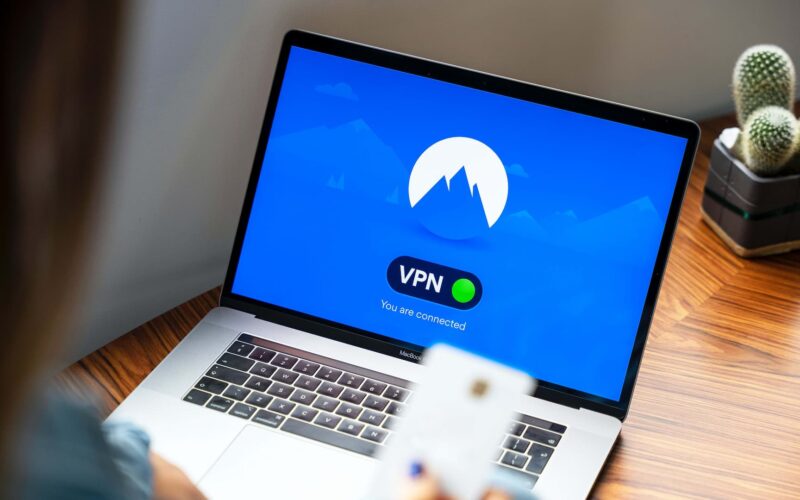Since almost every organization has been expanding its business activities online, the risk of potential cyber-attacks has also increased. Today the digital platform is not safe, and cyber-attacks are increasing daily. The private data of an organization’s multi-cloud software environment requires an extra layer of security. To save their business and personal information, companies have started to invest in VPNs as the constant violation of their security policies has increased the need to be anonymous.
Since COVID-19, the companies have constantly shifted their business to remote workplaces in a bid to maintain their business stability. Another major driving factor for applying VPN technologies is to sustain a secure, fast multi-cloud network. A virtual private network (VPN) is a companionable digital tool, whether it is about securely accessing restricted apps or sensitive data of your office system. According to research, the virtual private network market is at its peak and estimated at $44.6 Billion in 2022 and will extend to $77.1 Billion by 2026.
A VPN also enables the users to extend their shared computing network across a private network to receive and send data, assuming that the devices are linked directly to the private network. Based on their usage, they are broadly divided into two primary categories; Consumer and Corporate VPNs. Both of these VPNs possess their own set of purposes, and you must be familiar with the main differences between them. Here is your guide to the main differences between consumer and corporate VPNs.
What is a Consumer or Personal VPN?
Occasionally, a personal VPN is also referred to as a home VPN, as it is used at the personal or individual level. Consumers use this VPN to access sites or apps banned in their region or country. For instance, they might use a private VPN to unlock any restricted YouTube video or other websites. Therefore, a consumer VPN prevents internet service providers from tracking your personal data and provides you with an extra layer of security from the public internet.
What is a corporate or business VPN?
A corporate VPN is used to enter into an organization’s multi-cloud network, providing end-to-end encrypted access across the resources and data of a company’s cloud network. It helps encrypt end-point devices to securely connect across the software computing network of a company, protecting it from potential cyber-attacks and data theft. They are designed to provide additional protection to the private data of a software business network. To know more about corporate VPNs, you can visit this link: https://nordlayer.com/business-vpn/
The differences between a corporate and a consumer VPN
Number of Users
The main difference between corporate and consumer VPN resolutions is the number of users. As mentioned above, internet users require a consumer VPN for individual use to unblock a restricted website or application. Moreover, consumer VPN solutions are devised to accommodate single individuals and multiple devices the users own. On the other hand, corporate VPN is an advanced VPN technology that today’s cloud computing network demands. Such VPNs accommodate a large number of users of an organization. They are devised to proceed traffic across a cloud computing network securely.
Account management
Another feature associated with corporate VPN is an account manager that controls the setting of the company’s network. All the workers related to the company, regardless of their location, use a joint account under the control of an account manager. It ensures that nobody other than the manager can alter the VPN settings. In contrast, individuals with consumer VPNs hold absolute control over their VPN network.
Servers and IP address

Corporate and consumer VPNs have another main difference, and that is in assigning servers and IP addresses. Consumer VPNs allow you to access various servers from multiple countries to have an unidentified internet activity. This leads to a poor connection since numerous users might be using a similar server simultaneously. Similarly, you will be assigned a random IP address that changes every time you connect with the virtual private network.
In comparison, corporate VPN technology assigns every linked device a static IP address and private server. A top-notch corporate VPN solution ensures seamless and fast intercommunication between end-point and connected devices. Above all, it provides a company with an encrypted network to circumvent potential cyber-attacks.
Maintenance
Consumer and corporate VPNs also differ in management and require different maintenance approaches. Consumer VPNs demand zero to minimum maintenance, whereas corporate VPNs require more complicated and advanced management. Since corporate VPN solutions are devised for a secure and fast business network, they entail tailored strategies to fit into an organization’s network requirements. So, to maintain a high-quality VPN system, you must consult experts and hire service providers to manage your digital business network up to precision. When it comes to consumer VPNs, usually they deliver you updated security reinforcements and configurations, and you can handle them on your own.
Pricing
Pricing is another typical difference between both VPNs. Corporate VPNs are somewhat more expensive than consumer VPNs since they have extra features and accommodations. There are many free consumer VPNs out there too, and if you need a fast one, they are still more affordable than business VPNs. But it does not mean that corporate VPNs are too expensive. It all depends on your needs and the level of your business. If you own a small business, you can avail a fair quality corporate VPN at reasonable pricing.
Conclusion
The above discussion concluded that no matter whether the function of both consumer and corporate VPN is the same, the usage of both is different. This difference in their use makes them stand out apart from each other. Even the process of installation of both VPNs varies from each other. Since virtual private networks ensure secure and fast internet communication, corporate VPNs are crucial to modern businesses. With the constantly growing remote workforce, corporate VPNs make connecting quickly and safely with sizable multi-cloud business resources, particularly for small industries with limited resources.








